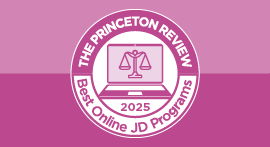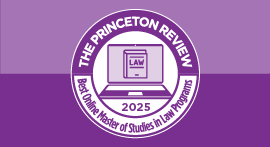
By the time you get to the big test, you’ll probably have invested as many as 300 hours over a period of months studying for the LSAT . If that’s the case, you’ll no doubt be ready for test day. What you may not be ready for is the strangely stressful day-before-the-test day.
At this point, you shouldn’t be looking to sharpen your analytical skills or attain new understanding of the material. This does not mean, however, that there is nothing of critical importance left to do. It is vital that you approach the day before the LSAT strategically , as the choices that you make can mean the difference between a stellar LSAT performance and a disappointing one. Here’s some advice to help you plan knowledgeably, avoid common pitfalls, and walk confidently into that testing center with every possible advantage.
Confirm your testing details online and review all LSAC rules
The day before the LSAT, you should visit the LSAC site and review all testing information and instructions. You will be responsible for knowing the specifics, including any last-minute procedural changes, such as a change in test center or other unforeseen circumstance. Be sure to review all LSAC regulations, including which items are prohibited from the testing center. Always remember that law is a rigid and rule-oriented profession. Infractions, even when clearly unintentional, are taken seriously. Don't allow something like a carelessly misplaced cell phone or an offhand comment in the corridor to become a problem. Be informed!
Pack wisely
Pack for the exam the day before, giving thoughtful consideration to what you’ll need. LSAC policies change periodically, so, once again, you should make yourself aware of any updates. Traditionally, test takers have been limited to a one-gallon clear-plastic Ziploc bag for their belongings, and they’re prohibited from carrying anything else on their persons. Required items, such as your admission ticket and valid identification, should obviously be included in the bag; check these off your list as you pack them. (Items such as tissues and feminine hygiene products can save the day!) Refer to the LSAT Candidate Information Sheet for a detailed list of permissible items.
Believe it or not, one crucial decision you can make will concern what food you choose to bring for the break. Don’t simply grab whatever is lying around your kitchen or hotel room on test day! The LSAT is a long and grueling test of stamina, and the energy of even the healthiest test takers can wane; you will need every nutritional advantage you can get. An apple and a bottle of water, for example, would provide relatively little benefit. Water will keep you hydrated, but it won’t affect your blood sugar or boost your energy, as would a beverage like orange juice. Moreover, an apple offers no protein and takes a relatively long time to eat. (Keep in mind that you will likely have no more than fifteen minutes to use the restroom and eat your snack, and that testing centers can be crowded and have lines for the restrooms.) Something like a tuna, egg, or chicken sandwich on soft whole wheat bread would be a much better choice. Remember that foods high in refined sugar, such as candy and soda, will give you a boost but may cause your energy level to crash before the exam is finished. Be equally wary of caffeine, an ingredient in chocolate and many sodas, as it can cause or increase anxiety. If you can, recall how your body reacted to different foods during practice tests and use that to plan accordingly. Don’t forget that you will probably not have access to a refrigerator, so you might consider storing your food in a cooler until you arrive at the testing center.
It’s also a good idea to review some photocopied LSAT questions that you’ve already done (maybe one game, one reading comprehension passage, and one page of Arguments) and leave these on top of your baggie the night before the LSAT. You’ll need some LSAT materials to work on right before you go into the testing center the next day. Your brain needs a few minutes to get into hyper-analytical LSAT mode, and you don’t want to be “warming up” during the early portion of the exam! (Don’t pack new questions or extremely difficult questions, as this will probably just shake your confidence.) Very important note : You are not permitted to bring LSAT materials into the testing center (doing so could be considered an attempt to cheat). Be sure to throw these papers away before you enter the building!
Do not take any practice exams
It bears repeating: Do not take any practice exams the day before the LSAT. Taking a full-length practice exam at this point won’t enhance your skills and will probably just increase your anxiety—it will surely drain your energy, as well. It’s a good idea to avoid doing timed sections, too. If you do complete a section or work through new problems, do so early in the day, and don’t dwell on how well you did. Very often, students perform comparatively poorly right before the exam, so don’t convince yourself that any eleventh-hour mistakes portend a poor outcome.
In lieu of substantial practice, it’s much better to focus on your test strategy! How many games should you attempt? Which Arguments questions should you do first? What habitual errors do you need to avoid repeating? Sorting out these issues and committing your plan to memory will be the most effective use of your time this close to the actual test.
Do nothing LSAT-related (or any other work) after 4:00 p.m.
We’re serious about this one! Resist the mindset that links success and hard work; your efforts will be counterproductive. Instead, consider relaxation to be your homework assignment for the evening. This means avoiding any kind of mental or physical exertion whatsoever. If you truly want to maximize your LSAT score, you will need to relax your mind and body before the exam. Chat with friends on the phone, watch a fun movie, or take a relaxing bath. In short, spend the evening recharging in whatever way works best for you.
Get a good night’s sleep the day before the LSAT
Unfortunately, this is often easier said than done. The day before the test, try to wake up early and avoid napping during the day so that you’ll be tired at bedtime. Keep in mind that caffeine after 2:00 p.m. can keep you awake at night, as can vigorous evening exercise, violent or disturbing television or videos, heavy foods, and lights left on while you sleep. Alcohol will sedate you but will impair the quality of your sleep, leaving you less refreshed and alert in the morning. Similarly, avoid over-the-counter sleep aids, which can leave you poorly rested and groggy, especially if you’re not used to taking them. If you do encounter trouble sleeping, don’t anxiously lie awake and stare at the clock desperately trying to force yourself to fall asleep. Instead, get up, read something pleasant or calming for a while, and then go back to bed when you’re feeling sleepy. Getting the restorative rest that you need requires a peaceful mind, so—above all—always keep a healthy perspective! The LSAT is just a test—nothing more apocalyptic than that. So relax and sleep well, wake up poised for success, and give the LSAT your very best shot!Read More
Explore Graduate Programs for You
Explore our featured graduate schools & programs to find those that both match your interests and are looking for students like you.
Best Online JD Programs
Online JD programs offer flexibility, affordability, access to innovative technologies, students from a diversity of career backgrounds, and global opportunities.
Best Online MSL Programs
Master of Studies in Law (MSL) programs are for non-lawyers whose careers in their organizations will benefit from legal training even though they are not required to be practicing attorneys.

Find MBA Programs Matched to Your Interests
Explore our featured business schools to find those that are looking for students like you.


